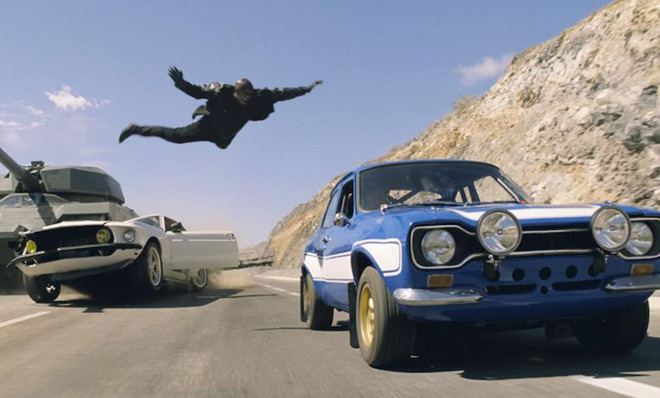Should movies be rated RD for reckless driving?
A new study finds a link between watching films featuring reckless driving and engaging in similar behavior years later

A free daily email with the biggest news stories of the day – and the best features from TheWeek.com
You are now subscribed
Your newsletter sign-up was successful

It's long been known that kids can learn unhealthy behaviors from watching movies. But along with cigarette smoking, heavy drinking, and the rest, we can now add another: reckless driving.
A first-of-its-kind study, published in the online journal PLoS One, finds that young people who watched movies featuring reckless behind-the-wheel behavior were more likely to engage in similarly dangerous driving years later.
It suggests that, if your teen has seen all of The Fast and the Furious films, you may not want to give him the car keys.
The Week
Escape your echo chamber. Get the facts behind the news, plus analysis from multiple perspectives.

Sign up for The Week's Free Newsletters
From our morning news briefing to a weekly Good News Newsletter, get the best of The Week delivered directly to your inbox.
From our morning news briefing to a weekly Good News Newsletter, get the best of The Week delivered directly to your inbox.
The study is based on a survey of 1,630 American adolescents, who were originally contacted in 2003, when they were between the ages of 10 and 14. They were re-interviewed five times over subsequent years.
They were asked as part of the initial survey whether they had seen a number of popular movies that featured reckless driving.
During the final interview, they were asked about their behavior behind the wheel. Specifically, they indicated whether they ever engaged in such reckless practices as weaving in and out of traffic, as well as inattentive behavior such as failure to yield.
The researchers found "a direct long-term relation between early exposure to reckless driving in movies, and reckless driving behaviors among U.S. adolescents with driving experience.
A free daily email with the biggest news stories of the day – and the best features from TheWeek.com
"Moreover, this relation was evident while controlling for many other important background variables," including gender, socioeconomic status, and a propensity for sensation-seeking, they write.
Notably, the researchers did not find a relationship between exposure to such films and inattentive driving. The difference, they write, is that "reckless driving is intentional — involving, for example, the decision to speed."
The study, conducted by a team led by Evelien Kostermans of the Behavioral Science Institute at Radboud University Nijmegen in the Netherlands, doesn't address the reasons behind this linkage.
But the researchers note that their results are consistent with "the notion that repeated exposure to risk-glorifying media may instigate risk-taking behaviors," either directly (by creating a positive emotional association with risk-taking) or indirectly (by shaping young viewers self-image, as they identify with risk-taking characters and gradually come to see themselves in such terms).
There are some obvious implications to this work. "Movie smoking is now incorporated into some ratings systems (that help parents decide which movies to let their children see), but reckless driving is not," the researchers write. "It could be."
And perhaps it should be. After all, they note, "whereas risky health behaviors such as excessive smoking or drinking primarily pose a threat to one's own health, risk-taking in traffic may also potentially harm others."
Pacific Standard grapples with the nation's biggest issues by illuminating why we do what we do. For more on the science of society, sign up for its weekly email update or subscribe to its bimonthly print magazine.
More from Pacific Standard...
-
 The ‘ravenous’ demand for Cornish minerals
The ‘ravenous’ demand for Cornish mineralsUnder the Radar Growing need for critical minerals to power tech has intensified ‘appetite’ for lithium, which could be a ‘huge boon’ for local economy
-
 Why are election experts taking Trump’s midterm threats seriously?
Why are election experts taking Trump’s midterm threats seriously?IN THE SPOTLIGHT As the president muses about polling place deployments and a centralized electoral system aimed at one-party control, lawmakers are taking this administration at its word
-
 ‘Restaurateurs have become millionaires’
‘Restaurateurs have become millionaires’Instant Opinion Opinion, comment and editorials of the day